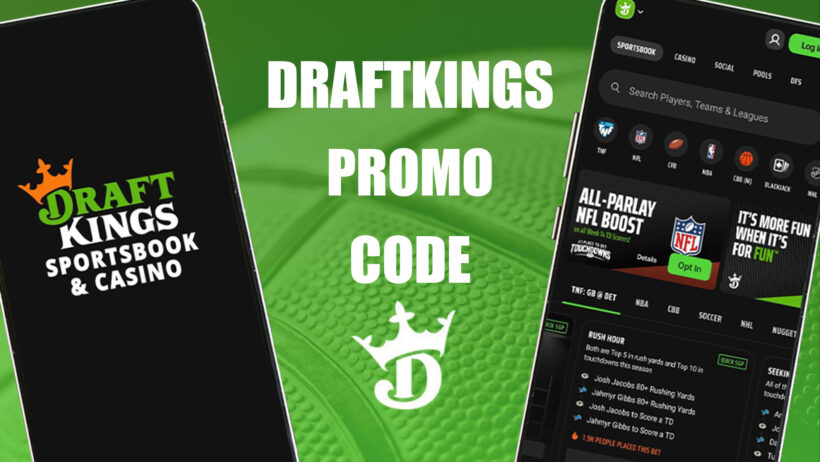Sports Betting Revenue for Every State

Lots of investors, sports fans, and others are interested in tracking sports betting revenue by state. The tables below can help, with overview revenue data for every state with legal sports betting.
Since the United States Supreme Court repealed the Professional and Amateur Sports Protection Act in 2018, more than half of all states have legalized sports betting. With an ever-expanding market, the amount of revenue generated by the sports betting industry is increasing dramatically.
Sports Betting Dime will keep you up to date with the latest economic data and share insights from the business of sports betting. Check out the tables below for a snapshot of sports betting revenue information on a state-by-state basis, then learn what it all means through our assessment of sports betting industry trends.
United States Sports Betting Revenue Totals
We’re keeping track of sports betting revenue on a state-by-state basis for key reported numbers from June 2018 to date.
For clarity, here’s what each number represents:
- Handle refers to the total amount wagered.
- Revenue reflects the gross gaming revenue kept by sportsbooks after paying out winning sports bets.
- Hold percentage shows how much revenue sportsbooks keep as a function of the betting handle.
- State tax revenue displays taxes collected by state and local jurisdictions or the state’s share of the proceeds in revenue-sharing markets.
Refer to the table below for each state’s total sports betting handle, revenue, and hold percentage, as well as tax revenue collected since legalization. We’ve also included some notes for additional context.
| State | Total Handle | Total Revenue | Hold Percentage | Total State Tax Revenue | Notes |
|---|---|---|---|---|---|
| Arizona | $2,306,944,233 | $200,694,135 | 8.7% | $7,908,256 | Launch retail and online sports betting on September 9, 2021 |
| Arkansas | $136,878,913 | $16,459,450 | 12.0% | $2,293,511 | Small market where mobile wagering is not allowed |
| Colorado | $6,047,510,354 | $380,160,523 | 6.3% | $16,428,256 | Strong launch in 2020 thanks to a robust online and retail market |
| Delaware | $477,989,307 | $71,525,799 | 15.0% | $47,614,926 | Highest hold percentage of any state in 2020 |
| Illinois | $10,451,262,511 | $748,061,836 | 7.2% | $120,492,418 | Challenging NV and PA for nation’s second-largest market in 2021 |
| Indiana | $7,420,731,773 | $570,854,900 | 7.7% | $54,231,218 | Sustained growth in latter half of 2020 driven by online betting |
| Iowa | $3,581,715,219 | $212,053,895 | 5.9% | $15,407,071 | Lifted in-person registration requirements in January 2021 |
| Louisiana | $628,289,580 | $53,798,568 | 8.6% | $7,308,341 | Launching online sports betting in early 2022 |
| Michigan | $5,531,087,839 | $428,129,082 | 7.7% | $13,764,842 | Massive growth in 2021 with launch of online operations |
| Mississippi | $1,631,459,045 | $181,688,472 | 11.1% | $21,802,617 | Largest retail-only market |
| Montana | $78,659,368 | $10,842,057 | 13.8% | $6,139,546 | Sports betting overseen by Montana Lottery Commission |
| Nevada | $22,714,626,084 | $1,312,371,000 | 5.78% | $88,585,043 | Industry took a big hit in 2020 due to COVID-19 casino closures but rebounding in 2021 |
| New Hampshire | $1,246,033,486 | $81,847,777 | 6.6% | $37,854,431 | DraftKings Sportsbook pays 51% of revenue to the state in exchange for exclusive rights to mobile market |
| New Jersey | $26,238,411,159 | $1,765,374,063 | 6.7% | $222,683,962 | Highest handle and revenue of any state in 2020 |
| New Mexico | — | — | — | — | Sports betting is run by native tribes |
| New York | $5,228,679,081 | $361,384,240 | 6.9% | $167,392,511 | Launched online sports betting in January 2022 |
| Oregon | $713,684,160 | $62,739,765 | 8.8% | — | Market underperforming in state-sanctioned monopoly |
| Pennsylvania | $13,746,491,797 | $1,013,751,455 | 7.4% | $240,853,837 | Third largest market behind New Jersey and Nevada in 2020 |
| Rhode Island | $1,036,714,022 | $91,051,247 | 8.8% | $46,436,136 | Remote registration permitted as of July 2020 |
| South Dakota | $4,172,371 | $408,680 | 9.8% | $36,781 | Retail-only market launched in late 2021, online began in 2022 |
| Tennessee | $4,112,332,588 | $350,659,847 | 8.5% | $58,138,238 | 10% minimum hold requirement took effect January 2021 |
| Virginia | $4,109,224,266 | $352,443,759 | 8.6% | $24,622,910 | Fastest state to reach $1 billion in betting handle |
| Washington, DC | $341,955,283 | $44,491,969 | 13.0% | $3,151,993 | William Hill retail location at Capital One Arena outpaces government-run online operator GambetDC |
| West Virginia | $1,340,003,908 | $105,053,038 | 7.8% | $10,505,304 | Inconsistent growth; took a loss in February 2020 |
| Wyoming | $64,627,382 | $5,833,907 | 9.0% | $177,303 | Launched with online sports betting on September 1, 2021 |
| Total (since launch) | $120,046,073,009 | $8,490,267,910 | 7.1% | $1,214,205,601 |
Rapid growth despite COVID-19 pandemic |
State Tax Rates
Each state is free to set out its own rules and regulations for sports betting. Lawmakers also determine what tax rate to apply to sports betting revenue. The majority of states have landed in the eight to 15 percent range, but as you can see from the list below, different states are taking vastly different cuts of the pie.
Below are the current tax rates for each state with legal sports wagering, as a percentage of revenue. This list is organized from the lowest to highest tax rates.
- New Mexico: Tribal casino-based (no applicable state tax)
- Oregon: 2.3 percent
- Iowa: 6.75 percent
- Nevada: 6.75 percent
- Michigan: 8.4 percent
- Indiana: 9.5 percent
- Colorado: 10 percent
- New York: 10 percent
- Washington, DC: 10 percent
- West Virginia: 10 percent
- Mississippi: 12 percent
- Arkansas: 12.5 percent
- New Jersey: 8.5 percent of land-based revenue; 13 percent of online revenue
- Illinois: 15 percent
- Virginia: 15 percent
- Tennessee: 20 percent
- Pennsylvania: 36 percent
- Delaware: 50 percent
- New Hampshire: 51 percent
- Rhode Island: 51 percent
- Montana: 100 percent (state-run)
Sports Betting Dime will keep you up to date with the latest rules and regulations for sports betting. This list will be updated as the market evolves and new states launch legal sports betting.
Sports Betting Revenue Trends
Tracking sports betting revenue makes it easy to spot a couple of dominant trends within the industry thus far.
Online vs. Retail Sports Betting
Online wagering dominates the industry as the preferred method for the majority of sports bettors. States that have fully embraced online sports betting have reaped the rewards of allowing sports fans to bet in the most convenient way.
Allowing online and mobile betting leads to more bets placed, higher sports betting revenue, and thus, more money back in the state’s coffers. This trend was accentuated even further in 2020 when many states were forced to shut their commercial casinos and other retail betting locations due to COVID-19 health and safety concerns. Meanwhile, online sportsbooks were able to carry on taking bets.
Heavily-populated, sports-crazed states such as New York as losing millions of dollars in tax revenue as bettors flock to nearby states like New Jersey to place wagers online. Even in states with smaller populations, the difference is stark. Arkansas and Iowa both launched in summer 2019 and have populations of roughly 3 million each, but Iowa has taken in more than 20 times as much betting handle. There’s no doubt mobile sports betting is a huge factor there.
Surely, states that are still sitting on the sidelines are taking note of this trend when considering their own legalization efforts.
Government-Run vs. Open Market
Another trend can be seen when looking at government-run sports betting operations versus those with more open markets. States that have taken an open market approach have flourished, as operators tend to get more creative with their offerings and promotions in order to remain competitive.
States that have government monopolies tend to implement higher tax rates to bolster state revenue despite having lower betting volume. Rhode Island, for example, retains 51 percent of sports betting revenue. An exception to this rule is Oregon, where sports betting is operated by the Oregon Lottery, but the state charges just a 2.3 percent tax rate. For more information on emerging powerhouse states, check out our guide on sports betting revenues from the past year.
Explore Further Analysis of the Sports Betting Industry
The sports betting industry is constantly changing, opening up new opportunities for bettors, sportsbooks, leagues, media companies, and academics.
Here at Sports Betting Dime, we’re continually evaluating the fluctuating landscape to keep you informed with detailed research and analysis. Check back here for the latest sports betting revenue information, and be sure to check out our Research section for more industry insights from the world of sports betting.
Have fun and enjoy the action out there!

Content Marketing Specialist
A sports fanatic and strategic wordsmith, Mitchell has been writing gaming content for over seven years. As sports betting emerges in markets across the globe, he’s ready to journey alongside those who haven’t wagered before with informative articles and comprehensive how-to guides.



